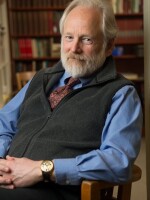Few remember African-American labor leader Asa Philip Randolph, but he set the stage for Dr. Martin Luther King Jr.’s 1963 March on Washington.
Tall, elegant, with the booming voice and careful articulation of a trained actor, Philip Randolph gained early notice as a political organizer and champion of black rights. He led the Brotherhood of Sleeping Car Porters, one of the few African-American organizations with national political power. Randolph sought to use that power to improve economic conditions for all blacks.
In 1940, three quarters of the nation’s 13 million African-Americans lived in the Jim Crow South – one third of them sharecroppers or tenant farmers. 90% lived in poverty.
Randolph understood the dismal calculus by which discrimination kept blacks in low socioeconomic conditions, which reinforced stereotypes of black inferiority, which in turn promoted further discrimination. However, he believed this self-reinforcing cycle could be reversed: if blacks could succeed economically, perceptions would change, making further success possible.
Randolph saw his chance when the nation’s industries began to mobilize for war. In 1941 he announced that one hundred thousand black men would march on Washington to demand jobs in defense industries. Fearing such a display of the contradiction between American ideals of equality and the segregated American reality, President Franklin Roosevelt demanded that Randolph cancel the march. Randolph refused. Roosevelt lost his temper, saying, “The President of the United States does not negotiate with a gun to his head.” But Randolph insisted: issue an executive order desegregating defense plants or the march is on.
It was a rare Roosevelt defeat. In late June, six days before the threatened march, he issued Executive Order 8802, prohibiting discrimination in defense plants, and established the Fair Employment Practices Committee to ensure compliance.
With the door now open for economic advancement, more than seven hundred thousand blacks left the South during the war. Millions followed over the next twenty years. By 1960 most African-Americans lived outside the South and no longer worked in agriculture.
Thanks to Randolph, Roosevelt made the first serious federal effort on civil rights since Reconstruction; one that set in motion the reversal of that self-reinforcing cycle of discrimination based on economic repression.
But Randolph wasn’t done. In 1948 he helped persuade President Harry Truman to desegregate the armed forces. And, in 1963, Randolph was planning another march on Washington when Martin Luther King suggested joining forces to create what became the famous event whose anniversary we celebrate this month.
A. Philip Randolph focused on advancing economic opportunity for African-Americans more than on legal rights because he believed that black economic progress was the key to social justice.
His success made Dr. King’s dream possible.





